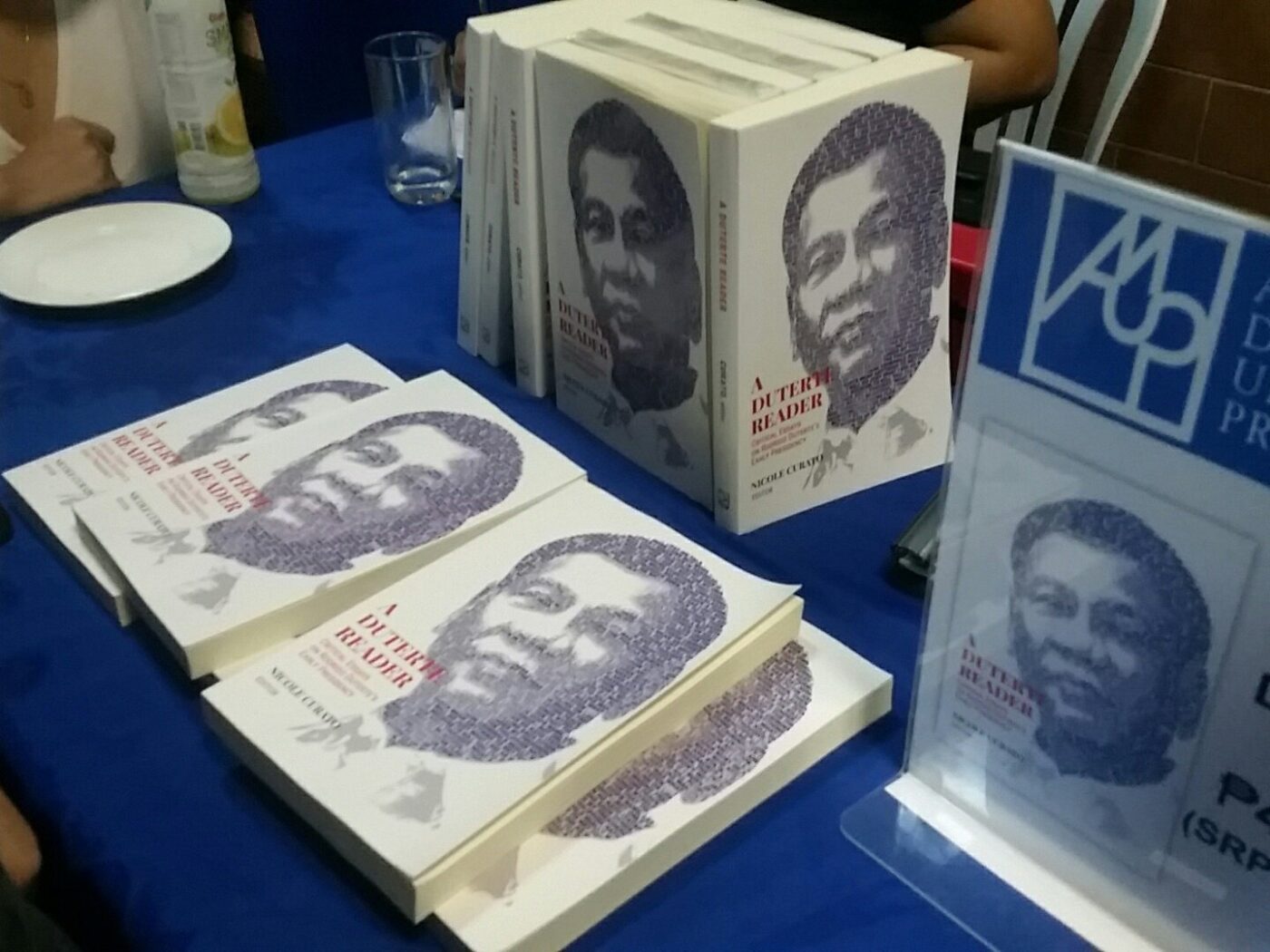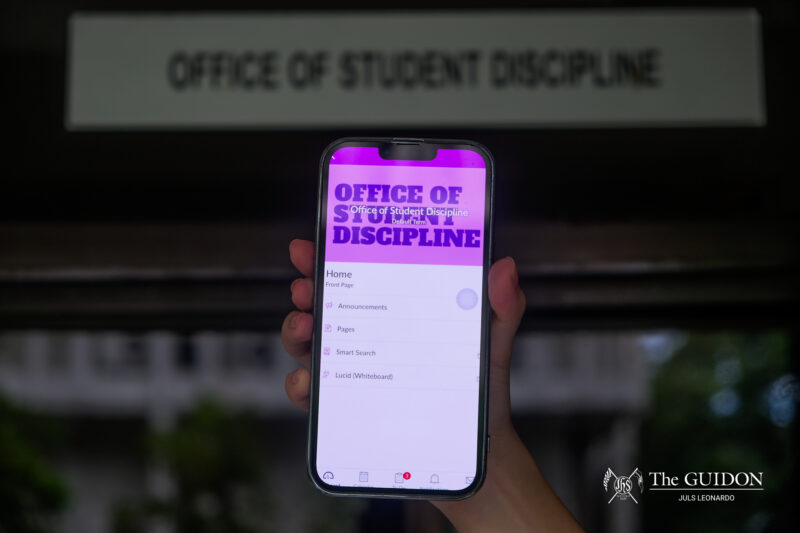AT THE launch of the book A Duterte Reader: Critical Essays on Rodrigo Duterte’s Early Presidency, sociologist Nicole Curato and other experts highlighted the need to value democracy under President Duterte’s administration.
They also called for vigilance against policies that compromise democratic rights.
Curato, the editor of the book, was joined by contributors Development Studies Director Jayeel Cornelio and Political Science Associate Chair Carmel Abao.
Contributors John Evangelista, instructor of Sociology at University of the Philippines (UP)-Diliman, and Cleve Arguelles, chair of the Political Science Program in UP Manila, were also present. Ruth Cabal of CNN Philippines moderated the event.
A Duterte Reader tackles issues of the nascent Duterte administration, including the president’s popularity among Filipinos, authoritarianism, and human rights, among others. These themes were also brought up in the panel discussion.
The book launch and panel discussion were held at the Faura AVR on October 13.
Changing the value of democracy
Curato said that there is an ongoing movement to establish “particular practices that are very much counter to the liberal character of Philippine democracy.”
“What’s being institutionalized is an illiberal project, one where human rights will forever be insecure,” she said.
Curato said that the government is using “practices of intimidation to de-legitimize democracy.” She called this the “troubling innovation” of the Duterte regime.
As an example of this, the panelists tackled the “de-legitimizing” of the 1986 EDSA People Power and the burial of late dictator Ferdinand Marcos, Sr.
“There’s an attempt to re-define the victors of the EDSA People Power,” said Arguelles. “Now, we see that Rodrigo Duterte is trying to use state resources para ibahin ‘yung story na ‘yun (Now, we see that Rodrigo Duterte is trying to use state resources to change that story).”
He said that people are “re-contextualizing” the definition of freedom and democracy.
“Instead of freedom and democracy na freedom of speech, human rights, now, the proposal is freedom against crime,” he said. “It’s also about freedom, but a different narrative.”
Arguelles said that re-shaping the narrative of EDSA is territory nearing dictatorship similar to Marcos’. “There is this attempt to resuscitate the authoritarian path,” he said.
Fighting against authoritarianism
Curato also warned of the “subtle ways” that democratic rights and practices are held back.
“We have to react when we think our democratic institutions are under attack, pero I think we also have to be more critical in terms of thinking of subtler forms of authoritarian innovations,” she said.
Arguelles also said that it is important to pay attention to and discuss these authoritarian measures. “There is a danger of dismissing all these attacks on the state of our democratic institutions,” he said.
Evangelista also warned of the compromises that authoritarians attempt to exchange at the expense of freedom and personal values.
“May mga offers silang kayang gawin, eh (They have things to offer),” said Evangelista. “We have to be wary about letting those tokens blind us from the bigger values of justice and human rights.”
Abao added, “It’s also a matter of assessing what freedom citizens are willing to sacrifice for the common good.”
What ‘Dutertismo’ entails
Cornelio said that differing views on Duterte should always be considered based on context.
He recalled his visit to Mindanao as a visiting professor, where he had talked to several people who “respect the man and trust the man, in spite of.”
“Middle class Manileños find the war on drugs problematic, [but] the people that I talked to in Mindanao are very, very sympathetic to it,” said Cornelio. “And it makes sense that the President is Mindanaoan.”
He said Duterte’s legacy “will not lie on the war on drugs” but “on what extent he is going to deliver his promises for Mindanao.”
He added, “I know that we are problematizing populism, but much of it is also very emotional.”
Arguelles also emphasized the importance of context to avoid hostility against Duterte supporters.
“The electoral victory of Duterte is a story that resonated with a lot of people, [especially] people from the margins,” said Arguelles. “If we dismiss [these people as] irrational and stupid, we’re missing the lesson, and we will not be able to offer a counter-story.”
Arguelles said that what Filipinos will need is “a credible story that could resonate with [marginalized] people.”
Meanwhile, Curato urged the public to remain vigilant on the administration’s policies. “I hope we ask the same question. We ask about Duterte’s illiberal fantasies: sino ba nakikinabang diyan (who is benefitting from them)?” she said.
However, she maintains that the “age of Dutertismo” calls for more space to practice democratic discourse.
“I’m quite optimistic in the sense that we are seeing new formations that are becoming more critical,” she said.
Curato said that the results of the administration is heavily reliant on the reception of Filipinos.
“Societies are always stronger than the strongmen,” she said. “Whatever comes out of the age of Dutertismo is really a reflection on the kind of society that we have.”







